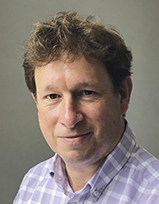Often performed today at weddings, Bach's 'Sheep may safely graze' is one of the great German composer's best loved arias. But what is it all about? Here is our quick guide to this rather lovely celebration of ovine security…
Where does 'Sheep may safely graze' originally come from?
It is a soprano aria that appears in Bach's secular cantata Was mir behagt, ist nur die muntre Jagd! or, as it is usually referred to, the Hunting Cantata. The aria is sung by the character Pales, a goddess of crops, pastures and livestock.
What is the aria, Sheep may safely graze, all about?
The words say that 'Sheep may safely graze where a caring shepherd guards them. Where a regent reigns well, we may have security and peace and things that let a country prosper'. You probably get the picture here. Flattering royalty never did a composer any harm, as Bach well knew…
And whom was he flattering?
Duke Christian of Sachsen-Weissenfels, a man of big ambition and, by all accounts, an ego to match. He was a passionate hunstman, and Bach and his librettist Salomo Franck wrote the Hunting Cantata probably to mark his birthday on 23 February 1713.
What happens in the rest of the cantata?
In terms of plot, not a great deal. Much of it involves an extended celebration of the joys of hunting and the glories of the countryside in general. As well as Pales, other characters to join in this homage to all things pastoral include the goddess Diana and god Pan.
How is the aria scored?
Originally, the soprano soloist is accompanied by the distinctive sound of a pair of recorders and continuo. At most church weddings, however, the organist has to make do with a well-chosen stop for the former.
Where can we hear the aria Sheep may safely graze?
See below…
